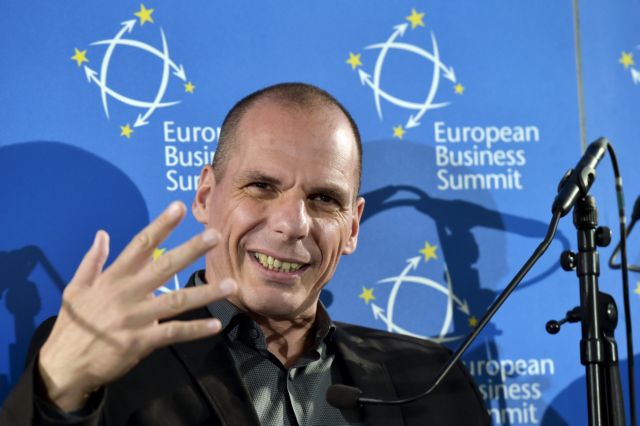The Minister of Finances Yanis Varoufakis revealed the main points of the new contract agreement that is being discussed between Greece and the institutions. He argued that there is an agreement between both sides on many key areas. Mr. Varoufakis, who was an invited speaker at the European Business Summit in Brussels on Thursday, referred to early pensions, the merging of pension funds and alluded to a VAT reform, with a low rate for medicine, food and books and a higher rate for everything else.
In his speech he stressed that Greece must be in the position where it does not need to borrow money in order to pay wages and pensions and underlined that the country’s public debt must be restructured. Similarly, the country’s public administration, taxation system and collection authorities must be modernized and efforts must be mad so that they escape the influence of political and business interests.
According to the Greek Minister, the crisis has caused a profound catastrophe to the job market, which has left production stagnant. Mr. Varoufakis asserted that insurmountable barriers are blocking the creation of new businesses and are curbing entrepreneurship. He also noted that competition was also severely restricted. Additionally, the profound inequality does not allow society to fully back necessary reforms, while oligarchic interests stifle growth and complicate reforms.
The main points of the reform package that is being discussed include:
- An agreement on finances for 2015-2020
- Privatizations
- VAT reform
- A self-government, independent fees and taxes agency, similar to the IRS
- Restriction on early retirements, merging of pension funds
The post-June growth contract would also include, among others:
- An investment package from the European Investment Bank (EIB) along with the foundation of a growth-focused bank with the shares that the State will hold onto from privatizations
- Swapping SMP bonds of the ECB, so that Greece may participate in the quantitative easing program
- Restructuring the initial transnational loan
- Streamlining and spreading out payments of the EFSF loan, in order to reduce financing needs in the early 2020s
- Broad, enduring financing of the program designed to tackle the humanitarian crisis



